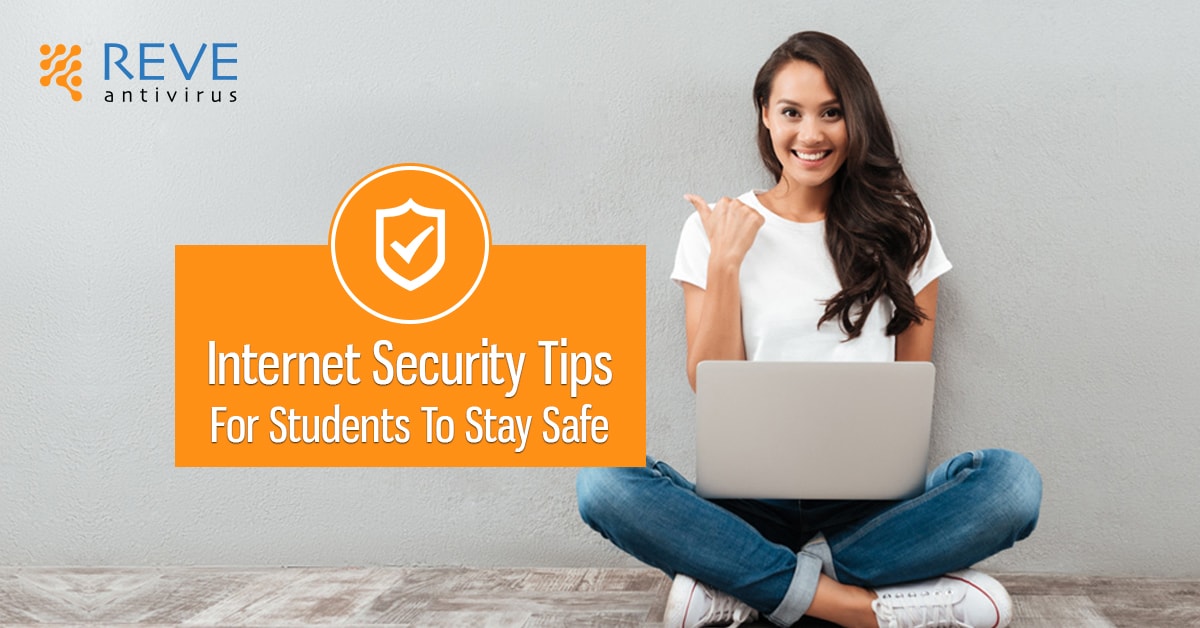
In simple terms, students have the same risks when using the internet like everyone else. But, unfortunately, despite belonging to the tech-savvy generation, many students do overlook the importance of cyber security. In today’s dangerous online environment, the bad guys are spreading viruses and other malicious software that can literally make your life a living hell. That’s the reason it’s so important for every web user to have the best virus protection software installed on their devices.
As the internet becomes a larger part of our lives, cyber security is crucially important. Read on to learn most important tips both college and school students should follow to stay safe online:
Invest In Best Virus Protection Software
Hackers already know that students nowadays seek out free music, games, apps and other options. They are also very well aware of the fact that students are more likely to trust links and email attachments. That’s the reason why antivirus software download is more of an important requirement than just an optional choice. Make sure all your devices have updated antivirus software. For better security, turn on the auto updates on! Also, there are several best free online antivirus software available for students- so really there are no excuses. When choosing security products, make sure to install security software from a trusted source.
Back Up Everything
Imagine you are working really hard on an important school or college project, and you lose everything on an event of data loss! Therefore, for better security backup your data and information frequently. Backing up your data protects your data in the event of virus/malware attack, hardware failure or system crash. Believe it or not, it really makes sense to backup your data regularly.
Check Your Social Media Privacy Settings
Have you checked the privacy settings for all of your social media accounts? If not then it’s the right time to do it! Change your Facebook, Instagram and other social media accounts privacy settings so that only your family members and trusted friends can access your posts and pages and see your profile information. Don’t hand your personal information out to millions of people online.
Don’t Share Your Passwords
So, you are expecting an important email or message regarding an educational webinar and want your classmate to check it for you? Hold on! Skip this idea, as it could come back haunt you. Never share your password, account details or student ID details with anyone! And, if you use computers in the library frequently, never save your passwords on the websites you visit or accounts you log into.
Update Your Passwords
This is one of the most general tips. Don’t use the same passwords for different online accounts or services. Avoid using passwords that are pretty easy to guess like your first and last name, birth date or address. Create a tough or strong password that includes a combination of special characters, signs etc.
Go Private On Unsecured Public Wi-Fi
Students nowadays usually don’t think about hackers or attackers when they connect to public wifi in coffee shops, libraries or malls. Believe it or not, but it could be fruitful to stress the importance of avoiding public Wi-Fi as the internet connection could possibly be vulnerable to unauthorized users. That’s why it’s always advisable to use a VPN to safeguard both connections and keep your online activity private.
When In Doubt, Contact Support
Nearly all security software programs providers offer 24/7 support to their customers, even for free trial antivirus protection. Nowadays, networks and servers are at high risk of data breach, in simple terms, the bad guys can break into an online account. So, if you have any doubt, that you have been hacked or your device is under virus or malware attack, don’t hesitate to call for assistance.
Whether you are a student or not, keeping the above tips in mind and using a good dose of common sense will surely help you stay ahead of dangerous cyber security threats. Stay safe online!
Share with us if you have more internet security tips in mind. Do leave your valuable comments!
- RaaS : The Dark Side of SaaS
- Hackers Target MOVEit Transfer’s Zero-Day Vulnerability, Emergency Patch Deployed
- How Scammers Are Utilizing ChatGPT? Few Tips To Be Safe
- World Backup Day: Why Data Backups are Important in Cybersecurity
- What is Social Engineering and How Cyber Criminals Use It
- Things To Know About Personally Identifiable Information (PII)
- What is Data Breach? Why and How It occurs? How To Prevent Data Breach


